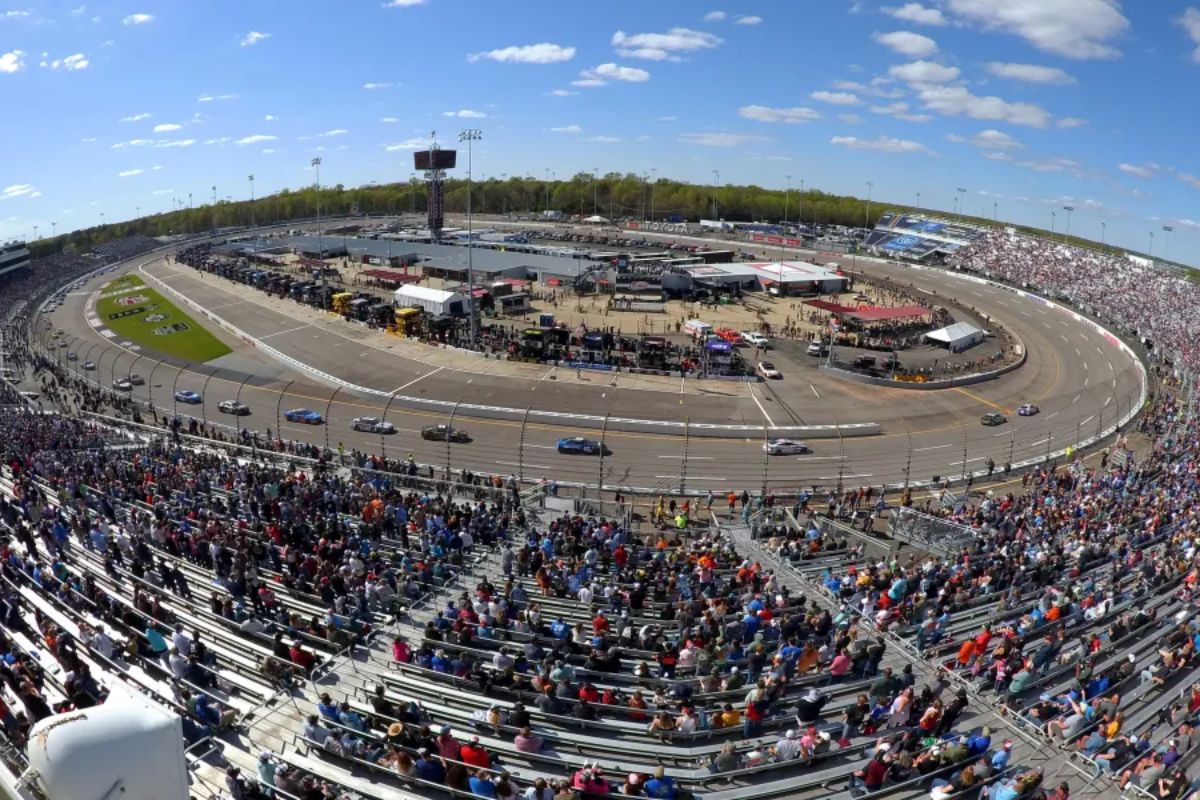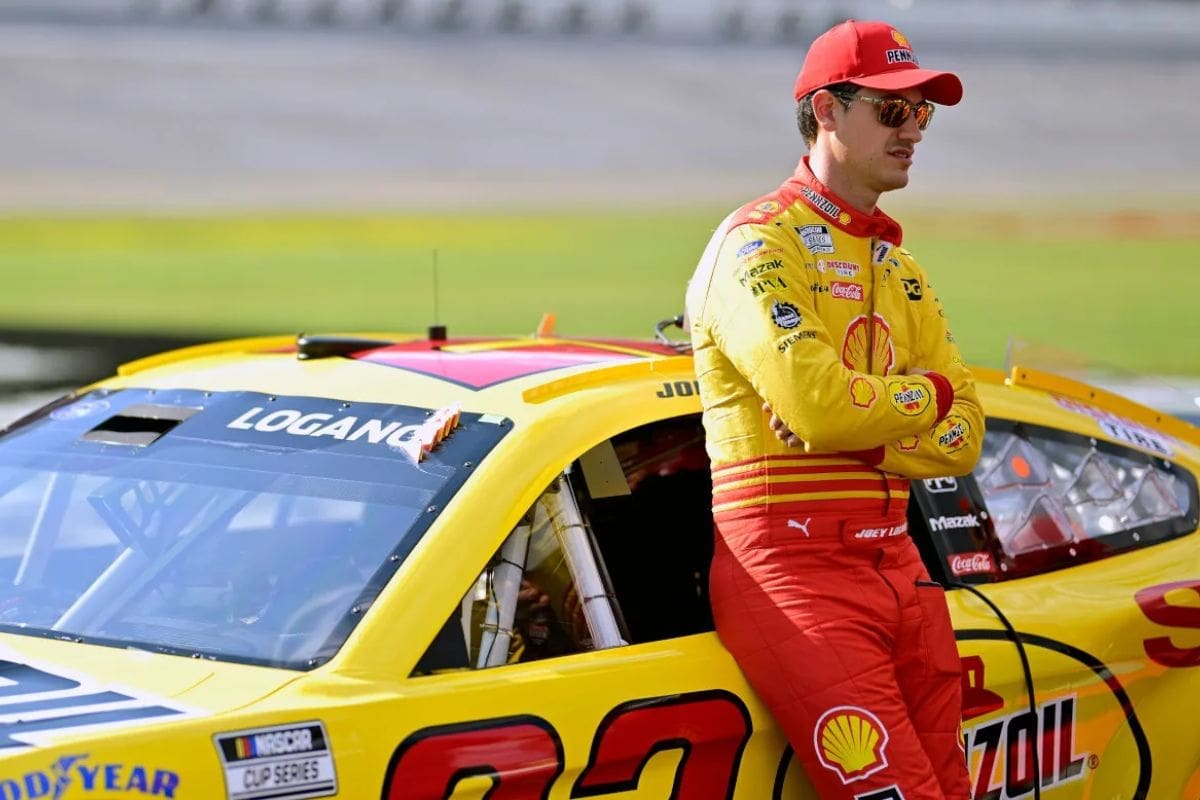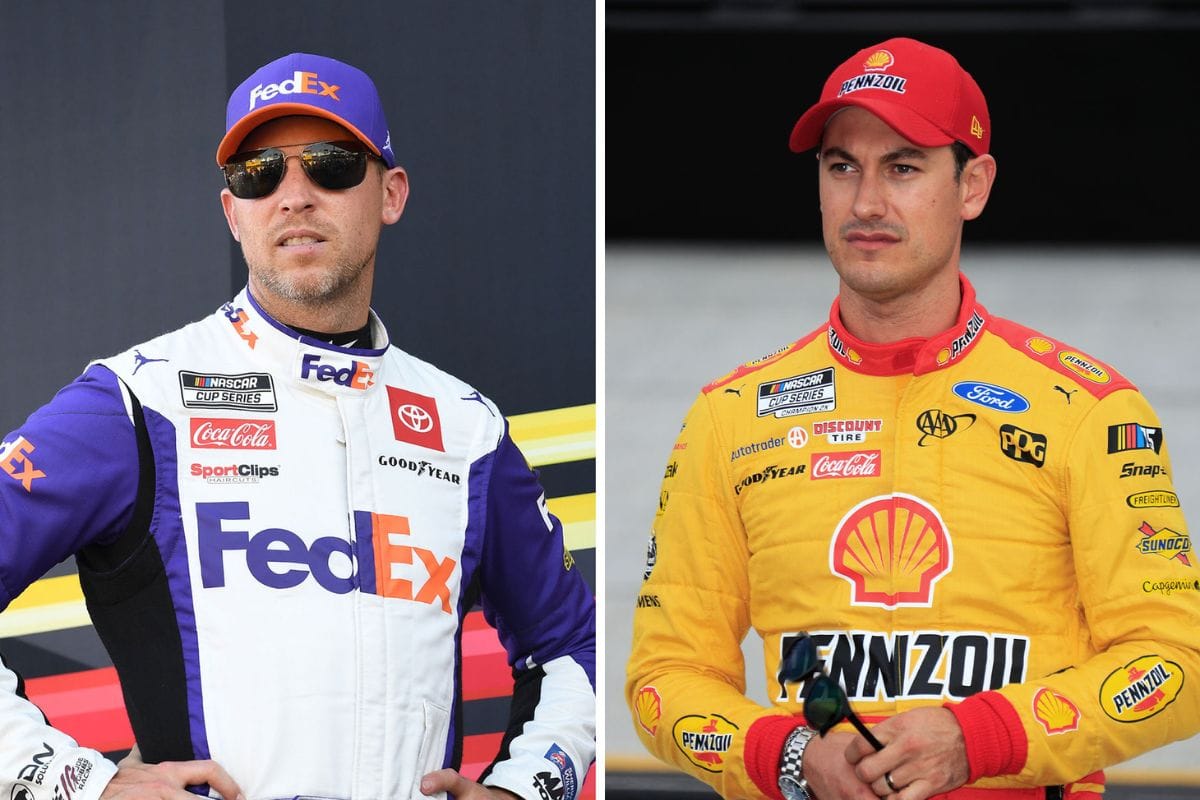Joey Logano and Denny Hamlin Seek Revenge: In NASCAR, Denny Hamlin and Joey Logano‘s decision to avoid potential confrontations with Austin Dillon reflects a calculated plan aimed at playoff success. By prioritizing a conservative racing approach, they mitigate the risks associated with conflict and emphasize the importance of teamwork and tactical foresight. This shift raises questions about the balance between aggression and caution in a sport where every move counts. As the playoffs approach, the implications of their choices could reshape the competitive landscape—what might this mean for their chances, and how will it affect their rivals?
Key Highlights
- Hamlin and Logano are prioritizing strategic racing to avoid unnecessary conflicts that could hamper their playoff positions.
- Both drivers are adopting a conservative approach to minimize risks and maintain their standings in the playoff race.
- They recognize the potential consequences of retaliating against Dillon, especially with his low point ranking creating a wild card scenario.
- Historical context highlights the importance of driver safety and competitive integrity in their decision-making during races.
- Collaboration and teamwork are emphasized as essential strategies for achieving playoff success while navigating the challenges posed by aggressive competitors like Dillon.
Controversial Finish at Richmond
The Richmond race concluded with a controversial finish that not only sparked debates among fans and analysts but also greatly impacted the playoff landscape. Austin Dillon’s unexpected victory stirred a mix of emotions, particularly within Richard Childress Racing, marking their initial win of the season in a dramatic fashion.
However, the success was overshadowed by the tumultuous sequences that unfolded during the race, culminating in notable consequences for key contenders like Joey Logano and Denny Hamlin.
Dillon’s path to victory was anything but conventional, as it involved a series of aggressive tactics that resulted in both Logano and Hamlin suffering disheartening setbacks. Logano’s drop from lead to P19 was a particularly stinging blow, given the importance of playoff points at this critical point in the season.
Despite the natural inclination to retaliate, NASCAR Insider Freddie Kraft suggested that maturity would prevail, urging both drivers to adopt a long-term perspective on their playoff ambitions.
This commentary highlights a crucial turning point in the season, where tactical thinking must outweigh impulsive reactions. As the dust settles from Richmond, the implications of this controversial finish will certainly resonate throughout the remainder of the season, influencing team strategies and driver dynamics as they navigate the challenging road to the playoffs.
Details of the Controversial Finish
Controversy surrounded the final laps of the Richmond race, culminating in a finish that has left lasting impressions on both the drivers and the fanbase. The climax of the event unfolded dramatically as Dillon, in a desperate bid for playoff qualification, executed a controversial tactic.
Leading the race until a late caution, Dillon found himself in a precarious position during the restart as he watched Joey Logano seize the advantage. With the clock ticking on his playoff aspirations, Dillon resorted to aggressive strategies. In the final turn, he rear-ended Logano, spinning the two-time champion and effectively eliminating him from competition.
This move, while securing Dillon’s initial win since the 2022 season, undeniably sparked outrage. Denny Hamlin, who was in pursuit of the victory, was also impacted, as Dillon’s collision sent Hamlin into the outside wall. The chaotic finale not only cemented Dillon’s playoff spot but also ignited a firestorm of debate among fans and competitors similarly.
Logano’s post-race comments reflected the palpable tension, labeling Dillon’s actions as “chickens**t” and vowing retribution in future races. Such sentiments highlight the elevated risks and emotional volatility present in elite motorsport competition.
That’s chickens**t, there’s no doubt about it. He was four car-length back, not even close. Then he wrecks the 11 to go along with it. Then he goes up there…they got him praising and everything. But it’s a bunch of bullshit and not even freaking close.” – Logano
As Dillon celebrates his unexpected victory, the repercussions of his aggressive driving style loom large, promising to shape future interactions on the track and intensifying the narrative surrounding the playoffs. The fallout from this finish will serve as a crucial moment in both Dillon’s career and the ongoing rivalry between these competitors.
Freddie Kraft’s Take on Revenge
In the aftermath of the Richmond race, the prospect of revenge looms large in the minds of competitors, particularly for Denny Hamlin and Joey Logano. NASCAR Insider Freddie Kraft recently articulated a detailed perspective on this potential conflict, highlighting the tactical considerations that must prevail over emotional reactions. According to Kraft, engaging in a confrontation with Austin Dillon, who finds himself far outside the playoff picture, poses considerable risks for Hamlin and Logano.
“I mean you’re not going to get into a pis**ng match with Austin Dylan because he can hurt you a hell of a lot more than you can hurt him.”
“You’re not going to start a war with a guy that you don’t plan on racing the rest of the year and these two guys are way smarter than that.” – Kraft
Kraft’s analysis emphasizes the importance of strategic foresight in NASCAR, particularly the stakes situations. He asserts that both Hamlin and Logano are astute enough to recognize that instigating a feud with Dillon, unless in a direct playoff showdown, serves no purpose and could be detrimental.
NASCAR’s Position and Potential Penalties
Navigating the intricate landscape of NASCAR’s competitive environment, officials are tasked with evaluating the fallout from recent incidents involving Denny Hamlin and Joey Logano. The interplay between on-track actions and the subsequent reactions of drivers creates a complex narrative that often necessitates intervention from NASCAR’s governing bodies.
As tensions escalate, the potential for penalties looms, particularly in regard to Hamlin’s remarks regarding the consequences of Logano’s aggressive tactics. Hamlin’s calm demeanor post-incident belies the underlying tension within the series. His acknowledgment of Logano’s tactical gain—moving up 20 positions in points—reflects a broader understanding of the competitive stakes involved.
However, Hamlin’s statement alludes to a belief that actions have repercussions, hinting at the possibility of NASCAR stepping in to maintain order. The league’s officials, including Elton Sawyer, are currently analyzing the intricacies of the situation, weighing the merits of potential penalties against the principles of competitive integrity.
“He’s got the win but obviously, he’s not gonna go far ’cause you gotta pay your dues back on stuff like that. But it’s worth it cause they jumped 20 positions in points, I understand all that, I get it, I just hate that I was part of it.” – Hamlin
NASCAR has historically been vigilant in addressing behavior that undermines the spirit of the sport. This incident presents an opportunity for the series to reinforce its commitment to fair play. As the governing body deliberates, the implications extend beyond individual drivers, impacting the entire playoff landscape.
NASCAR’s Review and Historical Context
The ongoing evaluation of Denny Hamlin and Joey Logano’s recent on-track incidents has prompted NASCAR officials to reflect on the historical context of similar situations. This inquiry is not merely procedural; it highlights the delicate balance NASCAR must maintain between competitive integrity and the sport’s inherent nature as a contact-driven environment.
As NASCAR’s officials sift through video and audio evidence, they confront a legacy of incidents that shape their decision-making.
- Historical Precedent: Previous incidents, such as the 2010 Xfinity Series case, often resulted in moderate penalties rather than severe sanctions.
- Cultural Norms: NASCAR has long accepted a “contact sport” ethos, which complicates the definition of crossing the line.
- Driver Safety: The paramount importance of safety must always be weighed against the thrill of competition.
- Future Implications: A lenient response to Dillon’s actions may set a precedent that encourages aggressive tactics among drivers in pursuit of victory.
“Historically that hasn’t been our DNA to take races away.”
“Our sport has been a contact sport for a long time. You always hear, ‘Where’s the line, did someone cross the line?’ I would say the last lap was awful close to the line, we’ll take a look at all of the available resources from audio to video, listen to spotters, we’ll listen to crew chiefs and drivers and if anything rises to a level that we feel like we need to penalize then we’ll do that on Tuesday.” – Sawyer
As officials deliberate, the tension between enforcing rules and preserving the sport’s thrilling essence becomes apparent. NASCAR must navigate these waters carefully, as the message sent through penalties—or lack thereof—can resonate throughout the racing community.
News in Brief: Joey Logano and Denny Hamlin Seek Revenge
The tactical decisions made by Hamlin and Logano to avert conflicts with Austin Dillon emphasize a notable shift in racing philosophy. By prioritizing a cautious approach and focusing on teamwork, both drivers position themselves advantageously for the playoffs. This calculated action highlights the importance of risk management in high-stakes environments, showing how maintaining composure and avoiding unnecessary drama can be crucial in achieving championship goals amid the intense demands of NASCAR competition.
ALSO READ: Joey Logano on Austin Dillon’s Win at Richmond Sparks Tensions with Richard Childress’ Crew



